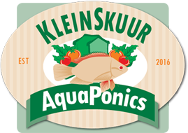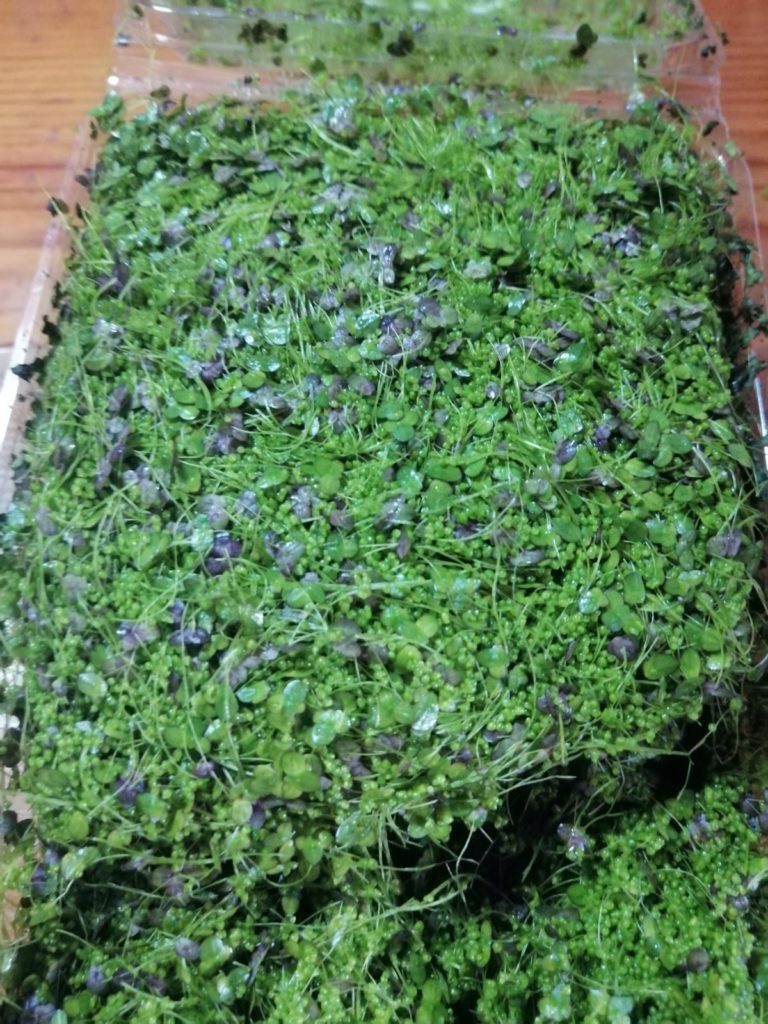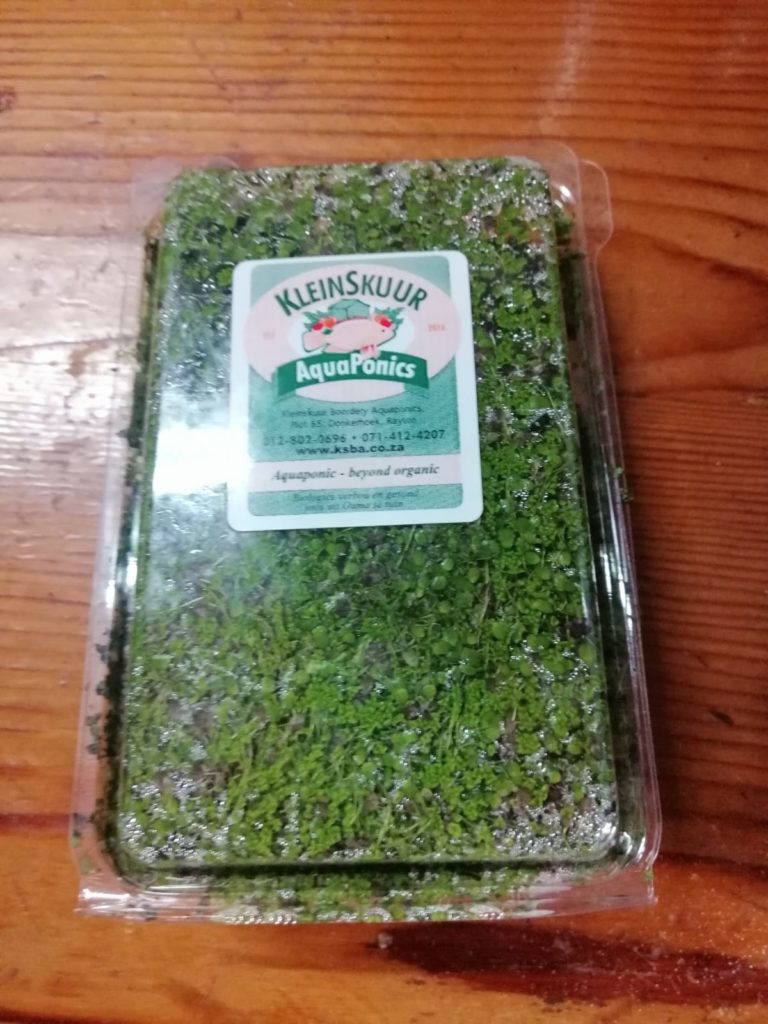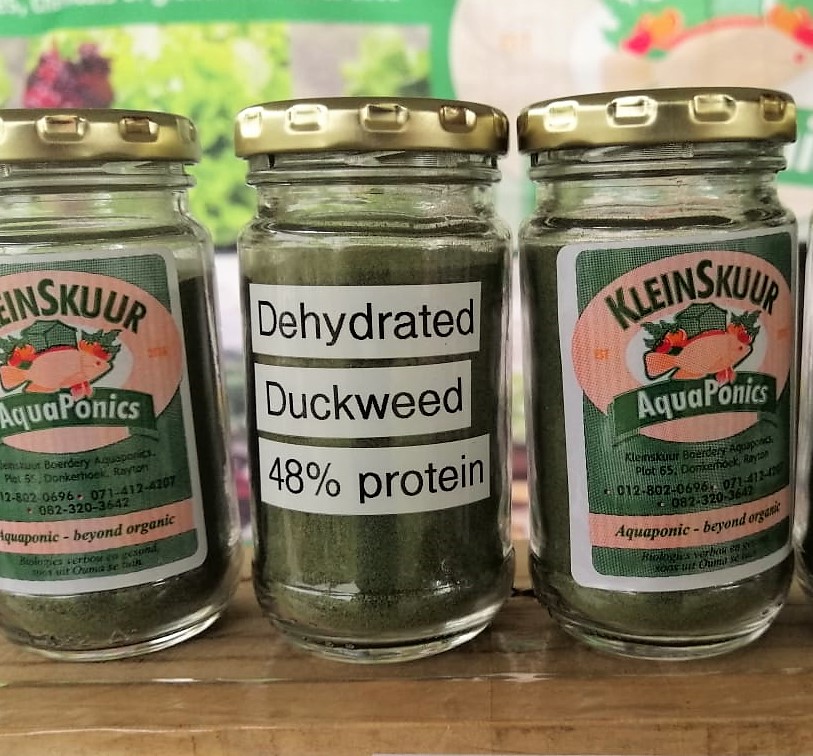What is duckweed?
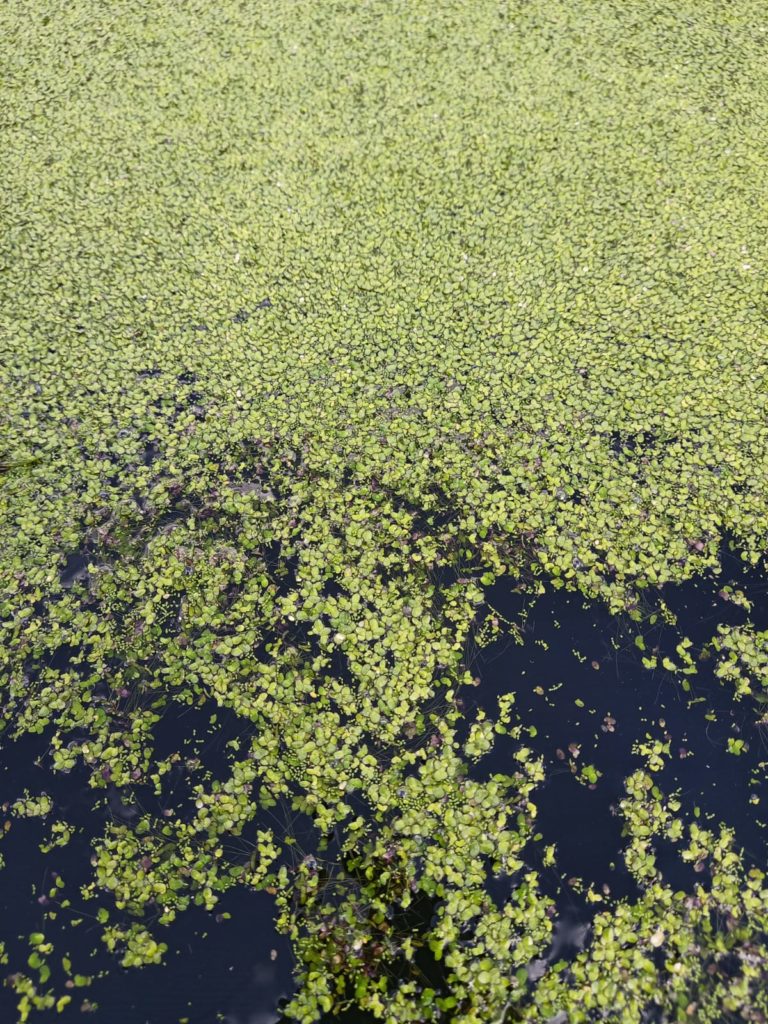
Duckweed is an aquatic plant that belongs to the subfamily Lemnoideae. Duckweed, sometimes called water lentils, looks like tiny leaves that float on top of water. From a distance, a body of water covered by duckweed looks like solid grass patches or algae floating on top of water. But this plant is not some sort of pest and is more useful than we ever imagined – especially in our aquaponic system.
You can identify duckweed by the small leaf-like structures that float on slow-moving, nutrient-rich water. This peculiar plant has no stem, but has tiny spikes that resemble stems underneath the water. The small leaves contain air pockets which enable the plant to float. They reproduce incredibly fast and do need to be kept under control. According to research, duckweed can double in size from 16 hours to 2 days depending on the climate and other conditions.
There are different types of duckweed, some smaller, some larger – but according to most research, they all contain the same wonderful properties.
Why do we grow duckweed?
In our aquaponics system, duckweed was first introduced as supplementary fish feed. As the duckweed spread throughout the system, even though we tried to stop it, we noticed a lot of other benefits.
Duckweed is the most nutrient-rich plant ever discovered. This was quite a surprise to us. We knew about the 32% protein in the plant which is why we give it to our tilapia fish. What we didn’t know was that duckweed is a rich source of Vitamin B12 – the only plant so far discovered that contains this essential nutrient.
Besides its high nutrient content, duckweed has other environmental and economical benefits for our aquaponics system. It covers the entire DWC which prevents evaporation, saving water which in turn saves money and protects the environment. It also helps to purify the water by using all the excess nutrients not absorbed by our plants. This means that the water going back to our fish is clean and filtered.
What feeds on duckweed?
Obviously ducks and waterfowl feed on duckweed. Poultry and sheep farmers use it as supplementary feed as well in dry form. Our tilapia fish enjoy nibbling on the fresh, green leaves and we discovered that duckweed is suitable for human consumption, especially for people that follow a vegetarian or vegan lifestyle due to the high protein content and high amounts of vitamin B12.
Asians have been eating duckweed, or water-eggs, for a very long time and it is only now being considered as a ‘superfood’ in western countries.
Why is duckweed the next superfood?
Duckweed contains 35% protein, 20% starch, 5% oil and 20% fibre. It can be used in its original state or dried into a powder without losing any of its properties. It is also one of the only plants with a high amount of vitamin B12, necessary for people who live on a low-meat diet. The other micro and macro nutrients depend on the water that is grown in. In other words, if the water is rich in a nutrient like magnesium, this will reflect in the makeup of duckweed. Since we do not use any harmful ingredients in our aquaponics systems, we know that our beyond organic duckweed is a great supplement for humans.
Where to find duckweed?
At Kleinskuur Aquaponics, we harvest duckweed, package it in containers and sell it at a reasonable price to our customers. We recently started selling duckweed in some stores, and have been selling it at food markets for a couple of years now. Our market is mainly vegan and vegetarian shoppers, as well as athletes and body builders, that use duckweed as a source of healthy plant protein.
You might ask what duckweed tastes like, but it is like explaining the taste of water to someone. We suggest you drink it in a smoothie, sprinkle if over salads, toast or muesli and yogurt. Some of our vegan friends use it in vegetable soups and stews, or eat it raw as a snack to keep their protein levels up during the day.
On the farm, our workers eat the duckweed off the water when they walk past it and describe it much like eating a tomato or a leaf of spinach fresh from a plant.
We also have a way of dehydrating duckweed and grind it to a powder which helps with storing and makes is easier to use in smoothies and food.
If you would like to purchase some duckweed, please feel free to contact us for prices. We will be able to supply you with a list of where our duckweed is sold, but you can also buy it directly from the farm, especially if you need high quantities.
